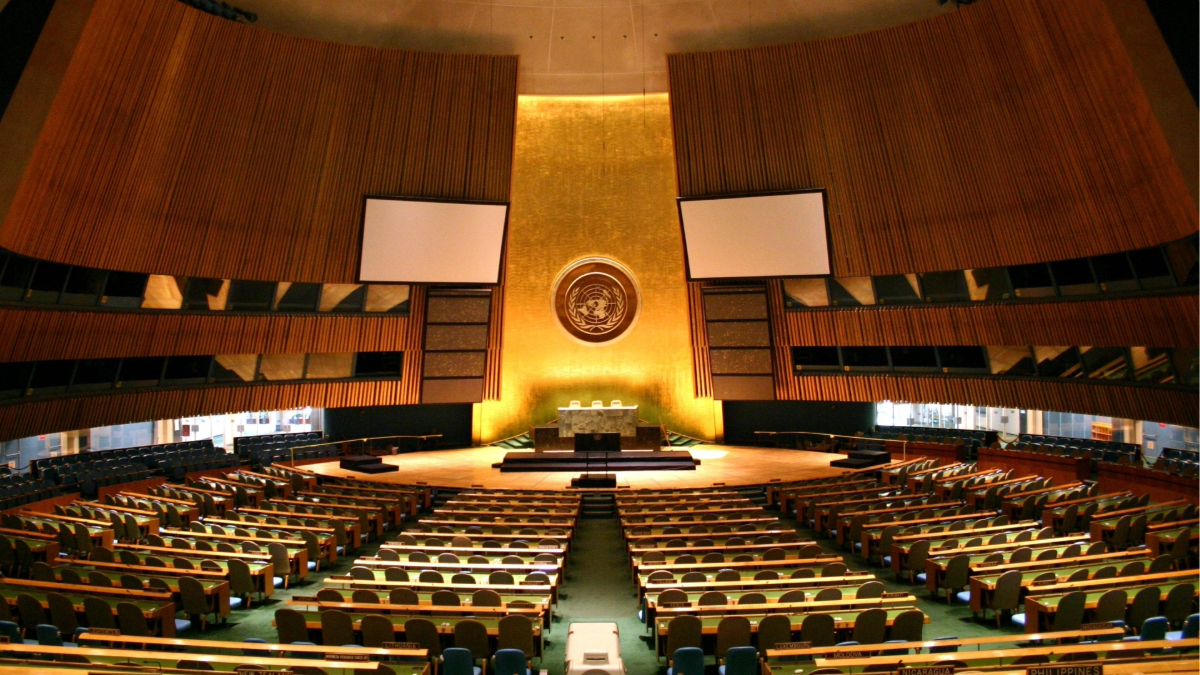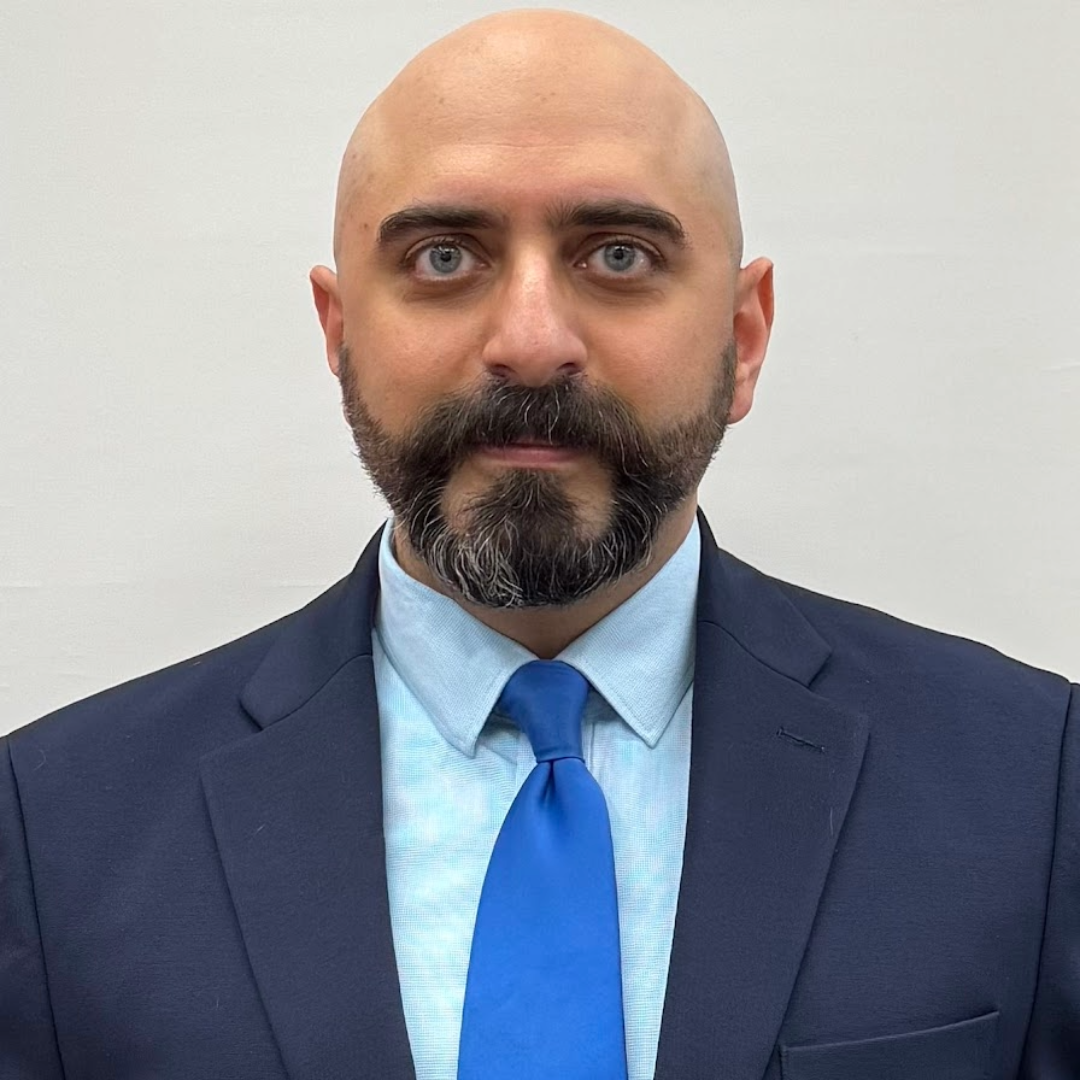Global Goals, Local Realities: Aligning AI Governance with Inclusion
Amaj Rahimi-Midani / May 23, 2025
United Nations General Assembly hall. Patrick Gruban/Flickr. CC by 2.0
On September 22, 2024, the UN General Assembly adopted the Pact for the Future, a landmark resolution that included the Global Digital Compact (GDC). Among its key initiatives were the creation of a multidisciplinary Independent International Scientific Panel on Artificial Intelligence (AI) and the launch of a Global Dialogue on AI Governance.
At first glance, the GDC appears to be a step in the right direction. It envisions a digital future that is inclusive, fair, safe, and sustainable. Yet the Compact offers no concrete guidance to ensure that either the Scientific Panel or the Global Dialogue will be meaningfully inclusive. Without a clear, enforceable framework for representation and participation, it is difficult to imagine how these efforts will live up to their stated ambitions.
To understand why this matters, one must first understand how UN resolutions come to life. While formally negotiated by Member States, these processes often leave limited space for input from civil society, marginalized communities, or independent experts. Much of the drafting occurs behind closed doors, driven by a small circle of diplomats. Facilitators may solicit feedback or invite written submissions, but there are no binding mechanisms to guarantee that diverse perspectives are not only heard but meaningfully reflected in the final outcome.
This procedural architecture is ill-equipped to tackle a challenge as dynamic and multifaceted as AI. When inclusivity is absent from the process, it is rarely present in the outcome. And if we continue to build global AI governance frameworks through processes that mirror only a narrow set of experiences and priorities, we risk hardwiring inequity into the systems of the future.
Language presents one of the first and most immediate barriers. Nearly three billion people around the world cannot speak, read, or write in any of the UN’s six official languages. If they cannot access the conversations—whether at national consultations or global convenings—how can their realities inform the policies being developed in their name? How can we claim to be designing equitable AI systems when entire linguistic and cultural communities are excluded from the table?
This is not a theoretical concern—it is happening today, even within the UN itself. As the Secretary-General recently emphasized during the launch of the UN80 initiative, the UN must become more agile, transparent, and accessible. Yet even now, informal consultations and negotiations at the UN frequently lack translation services, effectively sidelining countless Member States and civil society groups who cannot operate in any of the six official UN languages.
Rather than relying solely on costly human interpreters—or worse, expecting participants to fend for themselves—the UN could embrace AI-powered translation tools to bridge these gaps in real time, particularly during informal consultations where resources are limited. By training these tools on national linguistic datasets, countries can not only enhance their diplomatic capacity but also ensure that their languages and cultural contexts are represented in the development of AI algorithms themselves.
This approach would reduce costs, increase efficiency, and democratize participation, enabling diplomats, negotiators, and stakeholders from all linguistic backgrounds to engage meaningfully without the burden of translation expenses. More importantly, it would allow countries to reclaim agency over their data, their languages, and their place in shaping global governance processes.
But language is only one layer of exclusion. Another, less visible but equally consequential, lies in the data itself.
AI development is largely dominated by a small number of multinational technology companies. These companies are headquartered in the Global North, but much of the data that fuels their systems comes from the Global South. The imbalance is striking: the Global South contributes the raw material for advanced AI technologies but is excluded from the decisions that govern how those technologies are built, trained, and deployed.
Consider an AI system designed to monitor health trends among African-descendant women in the United States. Ignoring the broader health contexts of African and Caribbean populations would not only be shortsighted, but it could also be dangerous. Health outcomes are shaped by the interplay of genetics, diet, environment, history, and socioeconomic status. When datasets lack global context, the resulting technologies are biased, incomplete, and often harmful.
These concerns are no longer theoretical. We have already seen how AI can reinforce systemic inequalities, from discriminatory hiring algorithms to flawed tools used in healthcare and criminal justice. These systems are not neutral—they reflect the priorities, assumptions, and blind spots of their creators.
As the global community begins to define the architecture of AI governance, we must avoid repeating the very patterns of exclusion that have brought us to this point. That means rejecting the old diplomatic reflexes that prize speed and consensus over equity and representation. If we are serious about building inclusive and ethical AI systems, then inclusion must be foundational, not an afterthought.
In an ideal world, the Global Dialogue on AI Governance would adopt a multi-tiered, hybrid structure that ensures representation, accountability, and transparency from the outset:
- First, an inclusive Global Advisory Group could be established, composed of representatives from marginalized communities, Indigenous peoples, linguistic minorities, youth, persons with disabilities, and Global South experts—selected through open, transparent processes led by regional and thematic networks. This group would hold formal status within the dialogue process, empowered to co-design agendas, approve consultation methodologies, and review draft outcomes.
- Second, all consultations—whether virtual or in-person—would be conducted in multiple languages beyond the UN’s six official languages, leveraging AI for simultaneous translation into any language to ensure meaningful and inclusive participation.
- Third, the Dialogue should commit to an open, iterative approach, publishing draft positions for public comment and requiring Member States to transparently report how such inputs have been addressed. This would help ensure that the Global Dialogue does not simply mirror the usual closed, state-led processes but becomes a truly participatory platform that reflects diverse lived realities and knowledge systems.
Inclusion must shape who sits on the Scientific Panel, how the Global Dialogue is designed and conducted, and how knowledge, expertise, and lived experience are recognized and validated across cultural and disciplinary boundaries. It means ensuring that the Global South, Indigenous peoples, linguistic minorities, persons with disabilities, and youth are not just present but empowered to shape the agenda. It means treating translation, accessibility, and digital literacy not as optional add-ons but as essential components of legitimacy. And it means recognizing that diversity is not a box to check—it is the bedrock of credibility, resilience, and justice.
We stand at a pivotal juncture. The governance structures we build today will shape the ethical boundaries, technological trajectories, and social consequences of AI for decades to come. If we fail to act with intentional inclusivity now, we risk creating systems that entrench existing inequalities and serve the interests of the few at the expense of the many.
The time for symbolic gestures has passed. What we need now is bold, principled leadership—leadership that prioritizes justice, accessibility, and representation in global AI governance.
Authors
